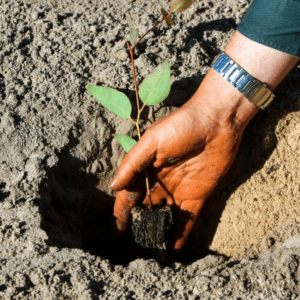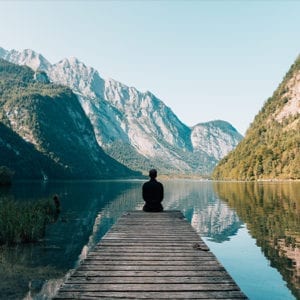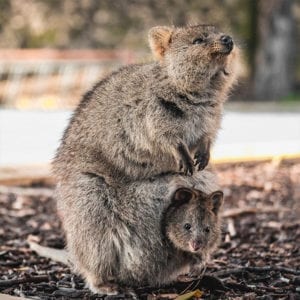
10 Tips for how to be a more Sustainable Traveller
3 November 2020
It’s important for us to remember that our travelling experiences don’t exist in a vacuum. The flights we take contribute significantly to carbon emissions, the plastic bottles that we buy at our gate before boarding the plane will take 450 years to decompose, and the communities that we visit are left much stronger if we support locally-owned businesses rather than large chains.
Travelling in a way that is less harmful to the environment goes hand-in-hand with supporting local businesses and encouraging employment.
Here’s a round up of ways that you can ensure you’re travelling more ethically and responsibly.
Eat and stay local
Eating at locally-owned restaurants and staying at locally-owned accommodation is a fantastic way to support communities and the economic growth of the places we are visiting.
But, have you ever thought about the carbon emissions associated with running those hotels or restaurants? For instance, larger chains rarely source the ingredients in their restaurants locally. By catering to the tastebuds of tourists, they are often shipping in their ingredients rather than sourcing them locally. By supporting smaller, independent businesses, not only are you reducing the carbon emissions associated with shipping containers of food around the globe, you are supporting local farmers, and getting to experience more authentic tastes of the places you are visiting. It’s a win-win!
Take public transport
Looking for a way to have a more ‘real’ experience on your holiday, and make an environmentally friendly choice? Taking public transport between destinations is a no-brainer! Travelling on a bus or train that is already running rather than a taxi or plane doesn’t contribute any additional carbon emissions. And don’t forget the chance to take in some stunning views and parts of the country you likely wouldn’t have otherwise seen.
What exactly is slow travel? It is the concept that travel should be about experiencing the people, places and culture that you are visiting rather than trying to see as much as you can as quickly as you can. In a practical sense, this may mean staying in a region for a few days or longer and really getting to know the place you are visiting. The intention here is to have a meaningful experience and a less stressful holiday as you aren’t rushed. A wonderful side effect of this concept is that it is better for the environment. By travelling slowly, you are driving and flying less, and more likely to visit smaller communities who will benefit from tourism.
Travel in groups
Travelling in a group is a wonderful way to see the world, learn from local experts and make new friends. Many group travel companies take large groups of travellers and aim to take them to as many destinations as possible very quickly, emitting plenty of carbon in the process. Companies that offer small groups mean smaller, local hotels and restaurants can be visited, and get around using smaller vehicles that are more environmentally friendly.
Responsible operators
Whether your entire holiday is a group tour or you’re just joining a day tour, choosing to support a responsible tour operator (like us!) means your money will be going to a company you can feel good about supporting. A responsible tour operator will work closely with the local community to ensure the activities undertaken aren’t destructive to the local environment or community, and will benefit the community by employing locals.
A good tip is to keep an eye out for B Corps! These are companies that have been through a rigorous certification process to prove that their business model makes a positive impact on the environment and the local community.
Find out more about how Inspired Adventures travels responsibly
Caring for our adventurers, the communities we visit and the wellbeing of the planet is the heart of everything we do. Read more...
Reusables
Every 60 seconds, a shocking one million single-use plastic bottles are purchased worldwide, with an additional one million plastic bags used in that same time frame. Switching to a reusable water bottle and carrying reusable bags is a simple thing we can all do to reduce this number. If you’re holding onto your water bottle for so long, you may as well personalise it! How about collecting a sticker from each city you travel to and sticking that to your water bottle?
There are several ways that you can minimise the impact of your hotel stay. Our first tip is to bring your amenities like shampoo, soap and face wash in a reusable container. This means you won’t need to continually use wasteful hotel amenities that come in tiny plastic packages. Plus, no more getting stuck with that confusing 3-in-1 soap! Have you ever considered the energy usage associated with the daily cleaning of your room and towels? By leaving the ‘do not disturb’ sign on your door and only having your room cleaned when you need it, this will reduce the carbon emissions associated with your hotel stay.
‘Leave no trace’ is a popular concept amongst hikers, but is a great policy to take on board generally. It is simply the concept of picking up after yourself, and leaving no trace that you have ever visited any given area. This may mean correctly disposing of your rubbish, or ensuring you follow a set trail so as to not disturb any native flora and fauna. It is a fantastic thing to visit new places and experience new cultures, but it is important to be aware of the impact we are having and to actively work to minimise that.
Carbon offset programs
Purchasing carbon offsets allows individuals and companies to invest in carbon positive programs to minimise their carbon footprint. Remember that this does not directly offset the emissions from things like your flight. Rather, through supporting projects such as reforestation, you are helping to offset the overall carbon footprint of the human race. Always ensure you’re doing this through a reputable investor.
Read more about carbon offsetting and reforestation
Carbon Neutral’s Yarra Yarra Biodiversity Corridor Project is focused on reforesting the region and to date have restored 13,500 hectares of native landscape... Read more...
Australians love to explore the world around them. It may be hard to hear, but one of the best things we can do for the environment is to minimise the travel we are doing. Tying into the concept of slow travel, it’s always better to travel longer and smarter, rather than more often.
Browse our adventures
Now you’ve read up on how to travel responsibly, why not browse our always evolving range of charity challenges.
Liked this article? Here's another you might like:





